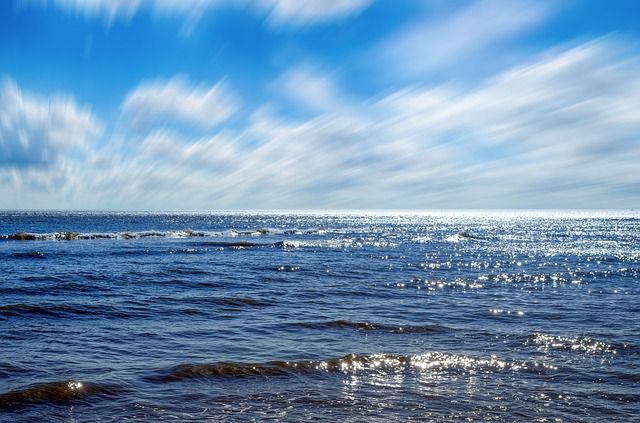
Ocean
Before the human-caused global warming and rising greenhouse gas emissions, ocean surfaces had actually undergone nearly 2,000 years of global cooling, a study found.
An international team of researchers, including University of Maryland professors, found evidence of a steady global cooling trend that occurred before the 19th century in a study published Aug. 17 in the journal Nature Geoscience.
The researchers combined 57 published surface ocean reconstructions of past temperature change over the past two millennia and observed long-term trends in 200-year windows.
Michael Evans, a geology professor and co-author of the study, said the study was a comprehensive look at warming and cooling cycles that revealed a long period of cooling before more recent warming.
“This is the first study that synthesizes only surface ocean reconstructions for the past 2,000 years,” Evans said. “The world’s oceans contain vast amounts of heat relative to the atmosphere, and as such regulate the climate on long timescales.”
The 200-year windows from 1001 to 1800 showed a significant cooling trend, but those from 1800 to 2000 showed warmer trends than the previous windows, Kaustubh Thirumalai, a co-author and doctoral candidate from the University of Texas, wrote in an email.
“We might roughly estimate that in the past century or so, sea surface temperature is increasing at a rate about 20 times faster than it was cooling over the previous millennium,” Evans said.
Water is denser and has a higher heat capacity than air, meaning that oceans absorb more heat energy and trap it longer. Oceans will warm or cool slowly in response to changes in global temperature, Evans said.
The research team compared ocean observations to climate model simulations and learned more about what might have caused global-scale ocean climate variations. Possibilities included volcanic eruptions, greenhouse gases, solar variations, shifts in Earth’s orbital parameters and land use changes, Evans said.
“Only when the climate models included climate forcing exerted by volcanoes were the different models we used able to simulate the cooling trend we observed,” Thirumalai wrote. “Therefore we conclude that significant volcanism at the turn of the last millennium played a big role in causing the cooling trend we observe.”
Volcanic aerosols in the stratosphere could have spread rapidly around the globe and caused cooling, as they reflect solar radiation into space before it reaches the Earth.
“We can use [the study] to understand natural variability of the climate system and to better understand what might potentially be in store for us in the future,” Thirumulai wrote.
The next phase of the research will begin in October with a workshop in Spain and will focus on temperature trends below ocean surfaces and regional studies, Evans said.
Antonio Busalacchi, an atmospheric and oceanic science professor who was not involved in the research, said the study provides a larger context for climate change research.
“The significance of this recent work is that it provides a longer-term climate context that shows how the rapid global warming we have been experiencing is not a result of fewer volcanic episodes,” he said, “but rather can only be explained by the increases in greenhouse gases that have accumulated in the atmosphere over the past 100 years.”



